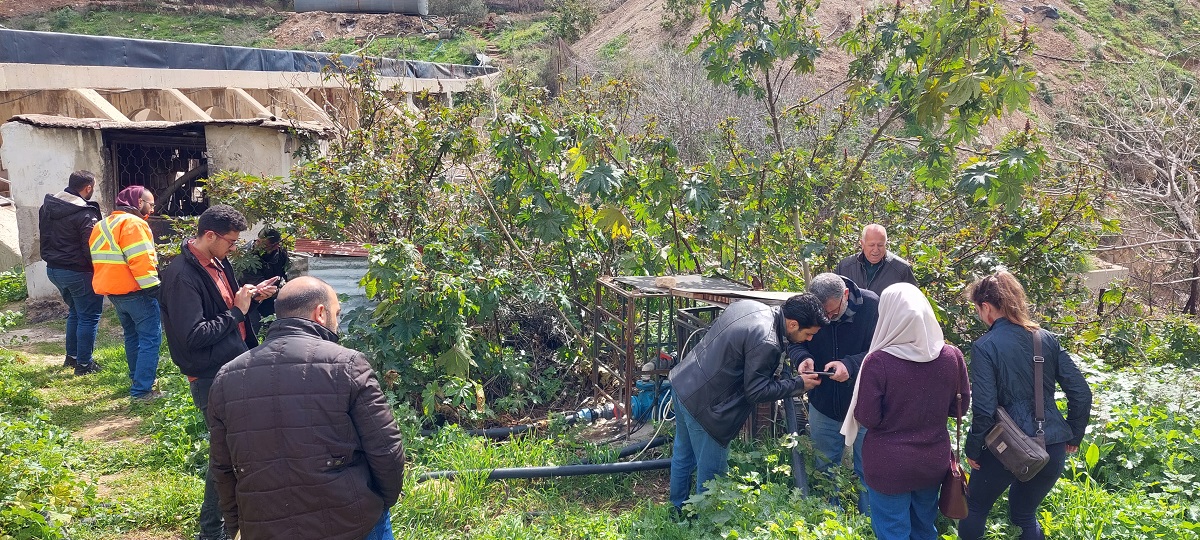The GWP 2020 – 2025 strategy highlights the importance of nexus thinking for coordinated and integrated action across the SDGs, and GWP supports WEFE nexus approaches in regions and countries for increased food, water, and energy security, socio-economic development, and sustainability. It does so by engaging in WEFE nexus assessments that support governance change, engage stakeholders, develop capacity, share knowledge, and support local level nexus solutions. Examples of interventions from the Mediterranean and Southern Africa are described below.
GWP Mediterranean identified the WEFE nexus as a key framework for action since the early 2010s, and has been supporting political processes, institutional capacity-building, and WEFE nexus implementation. GWP Mediterranean facilitates the technical task force of the Union for Mediterranean on the Nexus and carries out nexus-related activities across the region, such as the organization in 2018 of the [![]() 1st Nexus Roundtable in the MENA and wider Mediterranean region]. GWP advocated for the inclusion of Nexus related objectives in the Southeast Europe 2020 Strategy and is responsible for the implementation of IWRM and nexus-related objectives of the strategy. With the support of the Austrian Development Agency and the German Environment Protection Agency, GWP Mediterranean supports policy dialogues, nexus assessments, stakeholder engagement, and nexus planning in the sub-region.
1st Nexus Roundtable in the MENA and wider Mediterranean region]. GWP advocated for the inclusion of Nexus related objectives in the Southeast Europe 2020 Strategy and is responsible for the implementation of IWRM and nexus-related objectives of the strategy. With the support of the Austrian Development Agency and the German Environment Protection Agency, GWP Mediterranean supports policy dialogues, nexus assessments, stakeholder engagement, and nexus planning in the sub-region.
In recent years, GWP Mediterranean has further placed increased focus on WEFE nexus technical solutions. One example is the project [![]() ‘Making Water Cooperation Happen in MENA: Piloting Tangibles’], funded by the Swedish International Development Cooperation Agency (Sida) through the Union for the Mediterranean (UfM) and managed by Global Water Partnership Mediterranean (GWP-Med). The project provides Jordan and Palestine with concrete and scalable solutions to improve water management and enhance climate change resilience. Through the application of the Water-Energy-Food-Ecosystems Nexus approach,the project employs multi-stakeholder, multi-sectoral, and gender mainstreaming approaches to capitalise on these interventions to benefit MENA countries. Capacity building activities focus on enhancing farmers' technical and business skills, allowing them to better select crops, reduce costs, and link them to markets.
‘Making Water Cooperation Happen in MENA: Piloting Tangibles’], funded by the Swedish International Development Cooperation Agency (Sida) through the Union for the Mediterranean (UfM) and managed by Global Water Partnership Mediterranean (GWP-Med). The project provides Jordan and Palestine with concrete and scalable solutions to improve water management and enhance climate change resilience. Through the application of the Water-Energy-Food-Ecosystems Nexus approach,the project employs multi-stakeholder, multi-sectoral, and gender mainstreaming approaches to capitalise on these interventions to benefit MENA countries. Capacity building activities focus on enhancing farmers' technical and business skills, allowing them to better select crops, reduce costs, and link them to markets.
GWP Southern Africa fosters the uptake of Water – Energy – Food nexus approaches in the region towards improved water, energy, and food security. It does so through the implementation of the [![]() Nexus regional dialogue programme] in Southern Africa in collaboration with the Southern African Development Community (SADC), under the framework of a global initiative co-funded by EU DEVCO and BMZ and coordinated by GIZ (phase 1: 2017 – 2020 and phase 2: 2020 – 2023). The programme aims tocreatean enabling environment that will drive cross-sectoral engagement and implementation of nexus investment projects that contribute to enhancing water, food, and energy security in the SADC region. Resultshave included the adoption of a WEF nexus governance framework by Ministers at the regional level, the adoption of regional guidelines for nexus project preparation, and the identification of priority nexus investments.
Nexus regional dialogue programme] in Southern Africa in collaboration with the Southern African Development Community (SADC), under the framework of a global initiative co-funded by EU DEVCO and BMZ and coordinated by GIZ (phase 1: 2017 – 2020 and phase 2: 2020 – 2023). The programme aims tocreatean enabling environment that will drive cross-sectoral engagement and implementation of nexus investment projects that contribute to enhancing water, food, and energy security in the SADC region. Resultshave included the adoption of a WEF nexus governance framework by Ministers at the regional level, the adoption of regional guidelines for nexus project preparation, and the identification of priority nexus investments.
Given the risks and challenges around the inter-linkages between water and agriculture, GWP further supports dedicated interventions for food security and sustainable agriculture. This [![]() Briefing Note] describes GWP action on the topic.
Briefing Note] describes GWP action on the topic.



